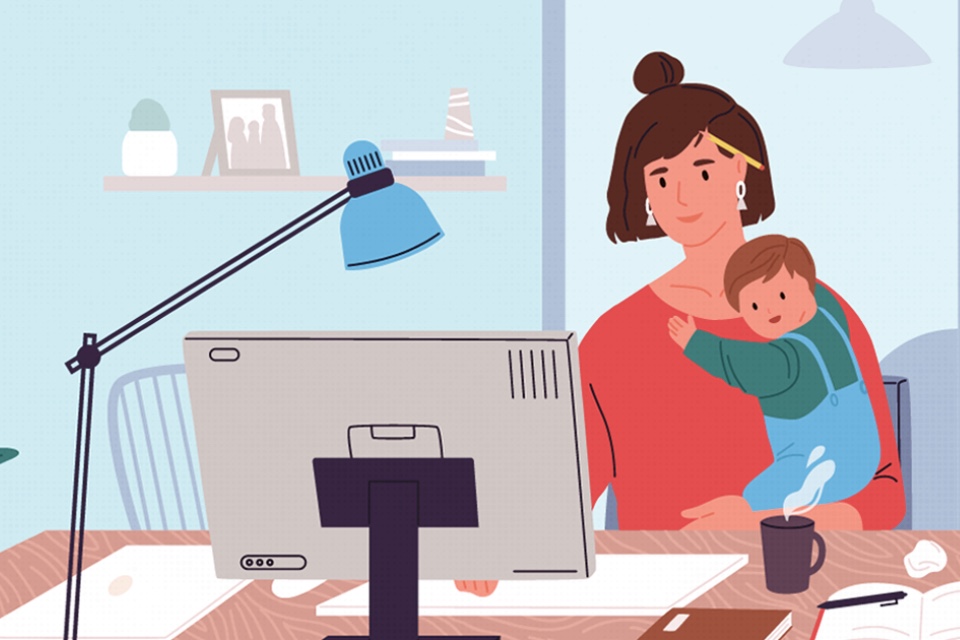New research reveals that nearly two-thirds of working mothers have either stopped working (40%) or reduced their hours (19%) since the start of the pandemic.
TopCV surveyed 1,017 UK professionals to find out how the pandemic had affected their roles as workers and parents. Of the working mothers who were no longer working, almost a third said they either had to stop working or take a sabbatical in order to accommodate childcare. The remainder were forced to stop working due to redundancy.
The recent findings suggest that working parents are still not getting the flexibility needed to balance the demands of childcare with working life, despite earlier findings from TopCV revealing that increased flexibility is high on the list of employee wants for 2021.
Unsurprisingly, this lack of flexibility appears to be creating an ‘either-or’ situation, with the juggling act becoming unsustainable for many working mothers.
Amanda Augustine, careers expert at TopCV, said: “Nursery and school closures throughout the UK forced many working women to reduce their hours or resign in order to handle the overnight burden of home-schooling and childcare during lockdown. Whilst our data shows that most working mums are eager to return to the workforce, many may be forced to choose between their careers and childcare unless more companies begin offering adequate flexibility policies and other benefits that support their evolving needs.”
“Though not a new problem, the lack of workplace flexibility experienced during the pandemic has eclipsed any progress made towards achieving gender equality in the workforce. It’s in the best interest of organisations, across all sectors, to establish a ‘new normal’ during the post-COVID recovery by committing to providing benefits that better accommodate working mothers — starting with flexible work arrangements.”
Whether you’re an employer looking to recruit more women to your organisation or a working parent seeking employment at a company that values gender diversity and equality, Augustine suggests prioritising the following workplace benefits:
- Flexible schedules: Companies willing to provide their employees with the flexibility to juggle their careers and household responsibilities are very attractive to working mums. This flexibility can be offered in various forms: working from home (part-time), working remotely (full-time), schedule rearrangements, job-sharing, part-time and flexible working hours.
- Extra paid leave: Some businesses have expanded their maternity leave policies to go beyond the standard 26 weeks of ordinary maternity leave and 26 weeks of additional maternity leave for those who are working whilst pregnant. In addition, employers such as Aviva and Etsy provide ‘gender blind’ parental leave, which entitles all parents-to-be, regardless of their sexual orientation or gender, whether they have given birth, gone through a surrogacy arrangement or chosen adoption, to 26 weeks leave on full basic pay.
- Childcare: Whilst some employers include childcare as part of the employee remuneration package, others such as Cisco and Next provide on-site nurseries that employees can use for a certain number of days each year as back-up care. In addition, some companies such as Goldman Sachs provide after-school and holiday programmes for children at their childcare centres. As more employees venture back to corporate workspaces, benefits like these will regain importance in the workplace.















